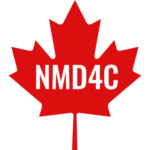Christopher Perry

Co-Applicant
Professor in the School of Kinesiology and Health Sciences at York University in Toronto, ON, Canada
Director of the Muscle Health Research Centre at York University in Toronto, ON, Canada
NMD4C Involvement: Pillar 1: Preclinical Science
Research Interests: mitochondria, muscle, Duchenne, neuromuscular disease, muscle weakness, reactive oxygen species, oxidative stress, redox biology, metabolism
Academic web profileGoogle Scholar profile
LinkedIn profile
ResearchGate profile
ORCiD profile
Biography
Dr. Christopher Perry is a Professor in the School of Kinesiology and Health Science and Director of the Muscle Health Research Centre at York University in Toronto, Ontario, Canada. His laboratory aims to understand how mitochondrial stress contributes to muscle weakness in a variety of disorders including Duchenne muscular dystrophy.
Ongoing work examines how certain muscles demonstrate dynamic resliency during cancer in an attempt to slow the progression of muscle weakness. Our team has also identified several compounds that partially restore muscle health in a mouse model of Duchenne muscular dystrophy by preserving mitochondrial metabolism. The lab also investigates how exercise improves muscle metabolism in humans and uses this information as the ‘mechanistic template’ for restoring healthy muscle function in diseases.
By working with clinical and industrial partners, the ultimate goal of the lab is to identify metabolic and redox stress-based mechanisms of muscle weakness and apply these findings towards the development of therapeutics that may help people improve muscle health, functional independence and quality of life.
Recent Publications
Gandhi, S, Delfinis, LJ, Bhatt, PD, Garibotti, MC, Bellissimo, CA, Goli, AN et al.. Adiponectin-receptor agonism prevents right ventricular tissue pathology in a mouse model of Duchenne muscular dystrophy. Mol Metab. 2025. 102179 PMID:40490137
Perry, CGR, Sweeney, G. Targeting mitochondrial fission for the treatment of myocardial infarction. Eur Heart J. 2025.46 (26)2595-2597 PMID:40326356
Delfinis, LJ, Khajehzadehshoushtar, S, Perry, CGR. Perspectives on the interpretation of mitochondrial responses during skeletal muscle disuse-induced atrophy. J Physiol. 2025. PMID:40321007
Ferguson, EJ, Pacitti, LJ, Bureau, J, Pufahl, CJ, Menezes, E, Stokes, T et al.. Biological sex does not impact intrinsic mitochondrial respiration supported by complexes I and II in human skeletal muscle. Exp Physiol. 2025. PMID:40137647
Tsitkanou, S, Morena da Silva, F, Cabrera, AR, Schrems, ER, Muhyudin, R, Koopmans, PJ et al.. Mitochondrial antioxidant SkQ1 attenuates C26 cancer-induced muscle wasting in males and improves muscle contractility in female tumor-bearing mice. Am J Physiol Cell Physiol. 2024.327 (5)C1308-C1322 PMID:39344417
Hughes, MC, Ramos, SV, Brahmbhatt, AN, Turnbull, PC, Polidovitch, NN, Garibotti, MC et al.. Mitohormesis during advanced stages of Duchenne muscular dystrophy reveals a redox-sensitive creatine pathway that can be enhanced by the mitochondrial-targeting peptide SBT-20. Redox Biol. 2024.76 103319 PMID:39178732
Gandhi, S, Sweeney, G, Perry, CGR. Recent Advances in Pre-Clinical Development of Adiponectin Receptor Agonist Therapies for Duchenne Muscular Dystrophy. Biomedicines. 2024.12 (7) PMID:39061981
Gandhi, S, Sweeney, HL, Hart, CC, Han, R, Perry, CGR. Cardiomyopathy in Duchenne Muscular Dystrophy and the Potential for Mitochondrial Therapeutics to Improve Treatment Response. Cells. 2024.13 (14) PMID:39056750
Ogilvie, LM, Delfinis, LJ, Coyle-Asbil, B, Vudatha, V, Alshamali, R, Garlisi, B et al.. Cardiac Atrophy, Dysfunction, and Metabolic Impairments: A Cancer-Induced Cardiomyopathy Phenotype. Am J Pathol. 2024.194 (10)1823-1843 PMID:39032600
Gottlieb, D, Abushamat, LA, Nadeau, KJ, Regensteiner, JG, Reusch, JEB, Tommerdahl, KL et al.. Muscle mitochondrial function is impaired in adults with type 1 diabetes. J Diabetes Complications. 2024.38 (8)108798 PMID:38991492
See more on PubMed